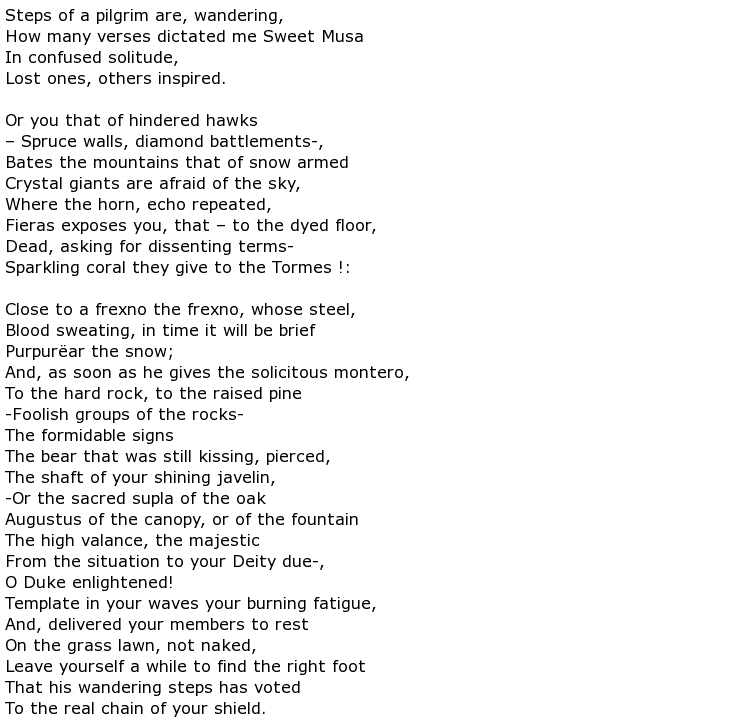 Luis de Góngora y Argote was a lyric poet of the Spanish Baroque era and also a Catholic priest. His literary accomplishments place him amongst the greatest Spanish poets of his time and he wrote in a style that became known, with a nod to his name, as Gongorism.
Luis de Góngora y Argote was a lyric poet of the Spanish Baroque era and also a Catholic priest. His literary accomplishments place him amongst the greatest Spanish poets of his time and he wrote in a style that became known, with a nod to his name, as Gongorism.
He was born Luis de Argote y Góngora on the 11th July 1561 in Córdoba, the son of a judge. He was well educated and, with the help of an uncle called Don Francisco, was able to take deacon’s orders at Córdoba Cathedral in 1586. Church business took him all over the country during the subsequent years and he was ordained into the priesthood in 1605, becoming honorary chaplain to King Philip III in 1617, but only for a short time.
As a poet he was at odds with a rival called Francisco de Quevedo for much of his life and, what should have been a contest for supremacy between two talented poets, often spilled over into bitterness and recriminations. They both wrote a lot of satirical pieces, one attacking the other, and Quevedo criticised him for his gambling habit and even accused him of the serious crime of sodomy, though this was never proved.
Góngora’s poetry can usually be categorised by two main poetic styles. A typical example, Fable of Polyphemus and Galatea, was written in royal octaves and tells the story of a mythical Cyclops, named Polyphemus, who falls in love with a nymph called Galatea, but the infatuation is not reciprocated. Another, the poem called Solitudes, written in 1613, displayed a distinct variety of metres and strophes and was constructed in stanzas and silvas that were interspersed with choruses. The opening verses to this long and complex poem are reproduced here:

Much of Góngora’s work was of a satirical nature. He wrote many sonnets, touching on philosophical and religious themes, and some were partly autobiographical, cataloguing the ongoing decline of the author himself as his advancing age took its toll. He also wrote a few plays, examples being Las firmezas de Isabela and La destrucción de Troya. He did not have any of his work published although some of his pieces found their way into unauthorised anthologies or were published by other parties both before and after his death. In fact a significant collection of ballads, sonnets, odes and longer poems were compiled and published by a man named Juan López de Vicuña shortly after the death of Góngora.
He was almost certainly a pioneer in the development of the Spanish language. Many words that appear in his work had been thought to be lost so enjoyed something of a revival under his patronage. In many ways he was a flamboyant character who engaged in activities, such as card playing and other gambling, that were not necessarily appropriate for a man of the church. Literary historians though have bestowed upon him much praise, with one describing him as possessing

Having travelled much during his lifetime, a serious illness forced Góngora to return to Córdoba in 1626. By now he was a broken man and virtually penniless.
Luis de Góngora y Argote died on the 24th May 1627 at the age of 65.

